Ministers Meet the Media at the First “Passage Interviews”
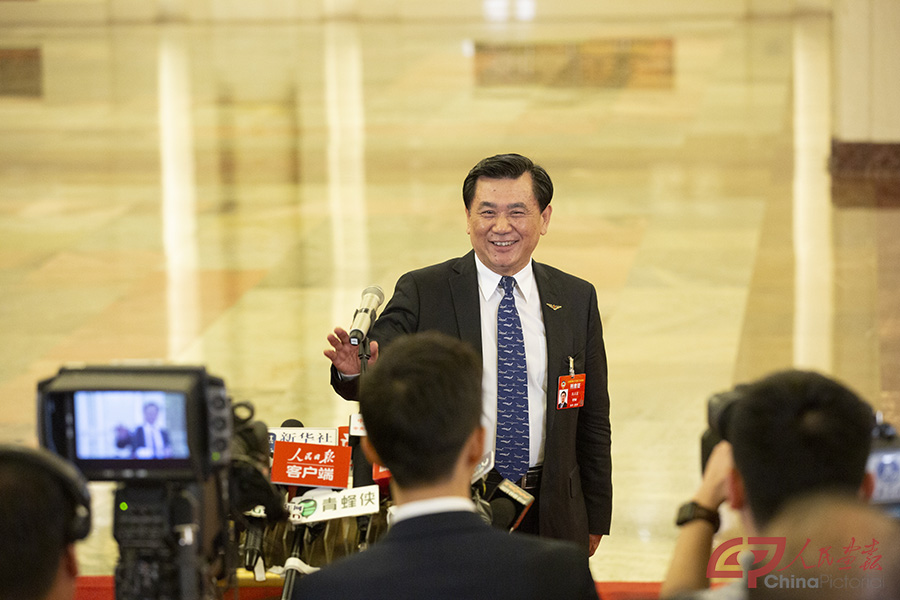
The 2019 annual sessions of the National People’s Congress (NPC) and the National Committee of the Chinese People’s Political Consultative Conference (CPPCC), commonly known as the “two sessions,” continue to have “passage interviews” of ministers, CPPCC members and NPC deputies. On March 3, the first ministers’ passage interviews for this year’s two sessions were held.
Six ministers took questions from the media this time. Four of them are heads of the newly established ministries based on China’s institutional reform plan in 2018. How are these “old” and “new” ministers going to better serve the people and shoulder their responsibilities? Here are the highlights.
“Safety is a top priority.”
Feng Zhenglin, head of the Civil Aviation Administration of China

For civil aviation, safety is the lifeline and there is zero tolerance for potential safety hazards. At present, China’s civil aviation has achieved a record of 102 months of safe flying and a record of 70 million hours for safe production.
In terms of operational goals, Beijing Daxing International Airport, the country’s new international aviation hub which will be put into use this year, will realize smooth operation and carry out moderate competition with Beijing Capital International Airport.
“Governmental agencies, public institutions, and social forces should work together to provide a better security system for veterans.”
Sun Shaocheng, Minister of Veterans Affairs
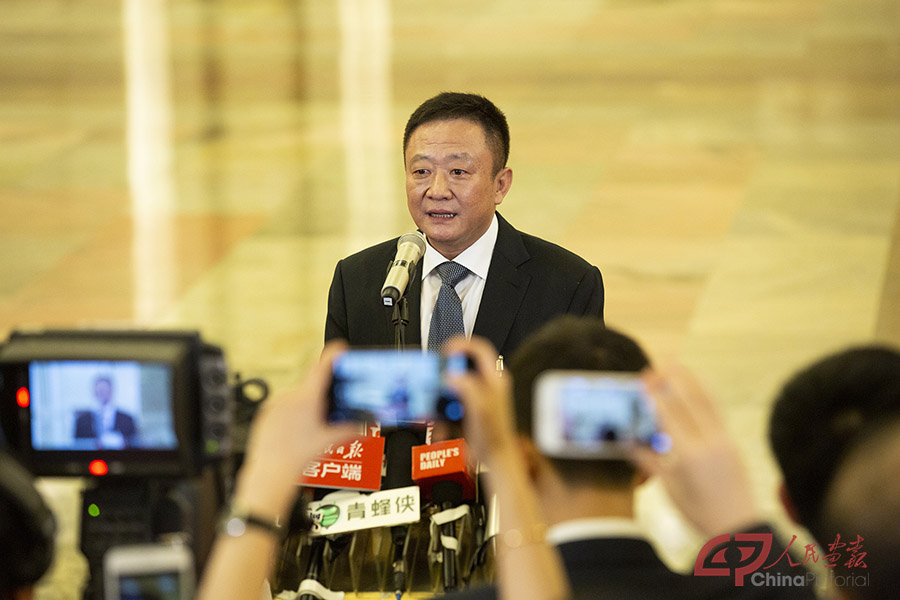
A draft law on supporting veterans is now on the way. The making of the draft law involved soliciting opinions and suggestions from various government departments and military units. If everything goes well, it will be delivered to the NPC Standing Committee for review in the second half of this year. Besides, the formulation of a total of 11 laws and regulations as well as 17 policies that concern veterans affairs has started or will start soon.
Governmental agencies, public institutions, and social forces should work together to provide a better security system for veterans.
“Museums still have growing pains.”
Liu Yuzhu, head of the National Cultural Heritage Administration
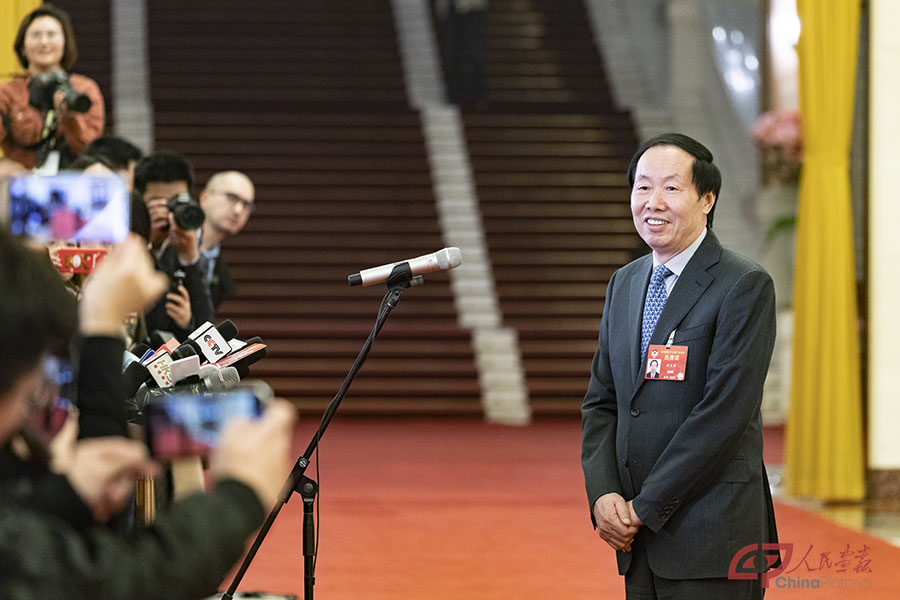
Nowadays, visiting museums has become fashionable in China. However, the museums still face some problems and need to be improved in many aspects, such as the insufficient diversity of the exhibits and overcrowded environment. Although it has had “growing pains,” museums have become must-visit places for many Chinese people. In the past three years, the number of museum visitors in the country has increased by about 100 million annually.
The bursting popularity of museums during the Spring Festival holiday has attracted widespread attention. During the seven days of the holiday, a total of 415 million trips were made, among which more than 40 percent visited museums, showing people’s great enthusiasm for the museums.
During the development of museums, people’s demands for diversified relics and high-quality services have been growing. The current supply and service of museums are far from enough to satisfy the public. So, we still have a lot of work to do.
This year, we will focus on the function and role of the museums and give more efforts to solve some bottleneck problems. In addition, we will strive to launch a plan on promoting the reform and development of museums to meet the new demands of visitors.
“We should include more life-saving drugs in medical insurance.”
Hu Jinglin, head of the State Medical Insurance Administration
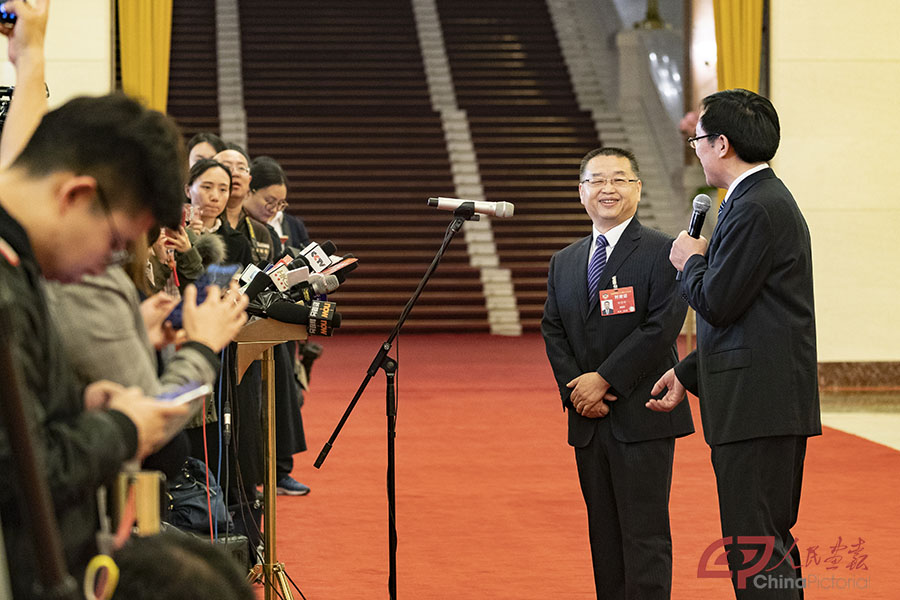
According to the decision and deployment of the CPC Central Committee and the State Council, the State Medical Insurance Administration conducted several negotiations with pharmaceutical enterprises to add anti-cancer drugs to the medical insurance medicine catalog last year. China included 17 anti-cancer drugs on the medical insurance list, cutting patients’ cost burden by an average of 56.7 percent. Including the drugs into the medical insurance medicine catalog is just the first step. It is more important for patients to access drugs under negotiations as soon as possible.
This year’s task has been made quite clear by the central government – that of incorporating more medicines for life-saving into the medical insurance medicine catalog. There is a need to reform the current catalog of basic medical insurance medicines, and establish a dynamic adjustment mechanism, as well as start the catalog adjustment work of 2019, which is expected to be completed in September.
Catalog adjustment could not only add items, but also clear out unqualified drugs. By optimizing the catalog structure, we will try to include more life-saving medicines in the medical insurance system.
“China’s foreign aid is still categorized as South-South cooperation and it will provide assistance within its ability.”
Wang Xiaotao, head of China International Development Cooperation Agency
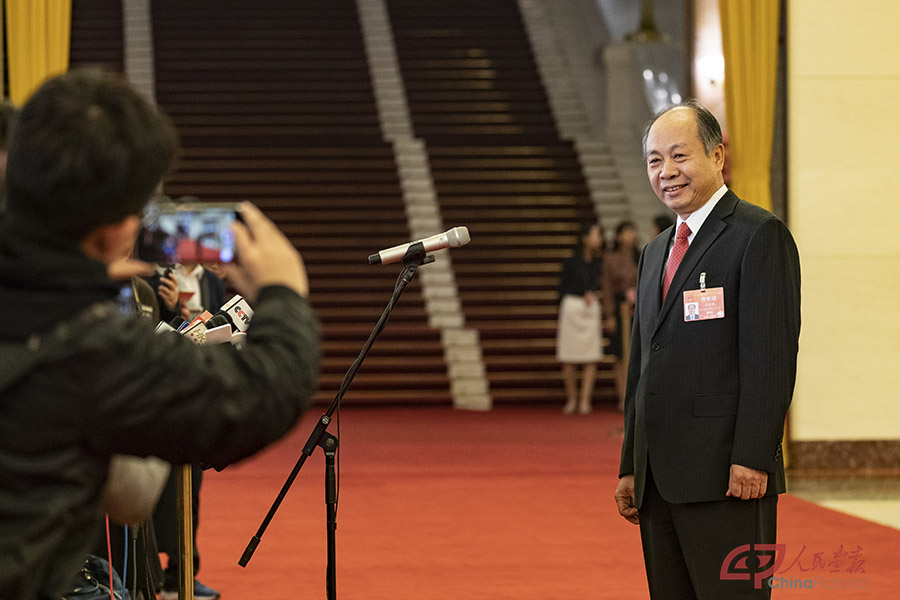
Inaugurated on April 18, 2018, China International Development Cooperation Agency marked a milestone in China’s foreign aid history and a new journey for the country’s foreign aid. The country’s foreign aid efforts showcase Chinese people’s sense of justice and sympathy for those in need.
China is still a developing country. Unbalanced development between different regions and between urban and rural areas still exists. Thus, the country’s foreign aid is still categorized as South-South cooperation and it will provide assistance to foreign countries within its ability. China will make sure that every penny is used wisely in foreign aid.
“We shoulder great responsibilities and cannot go backwards.”
Li Ganjie, Minister of Ecology and Environment
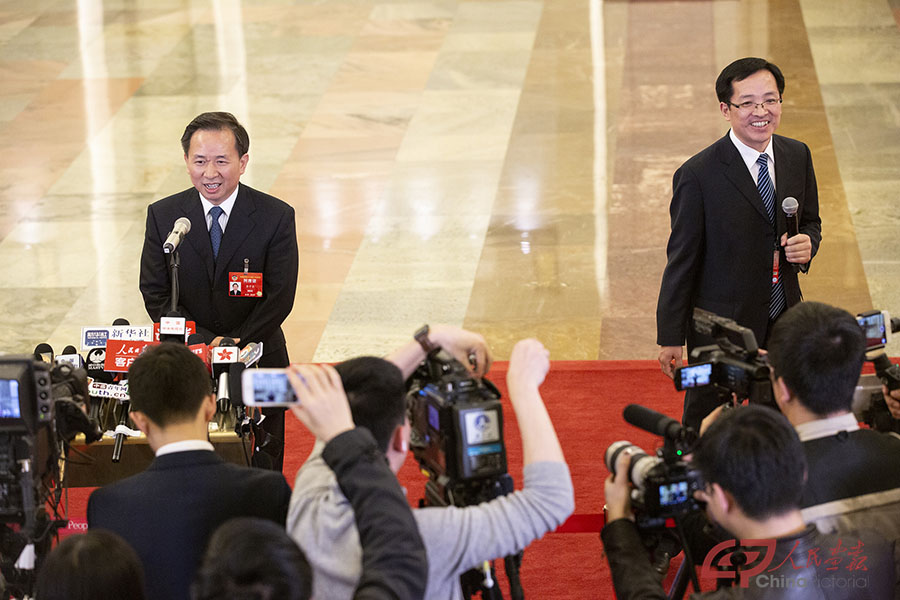
In 2018, the average PM2.5 concentration in 338 prefecture-level-and-above Chinese cities dropped by 9.3 percent over the previous year, with that of Beijing declining by 12.1 percent.
China is moving ahead in the right direction in pollution control. But the situation remains grim and the country still faces many challenges in further promoting its ecological progress. The Ministry of Ecology and Environment shoulders great responsibilities and works under great pressure. But we cannot go backwards, and must march towards the right direction unswervingly.